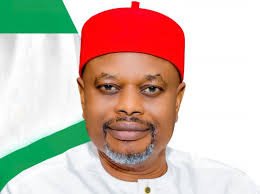Since Nigeria’s return to democratic rule in 1999, a recurring theme has shadowed the nation’s political class—resignations and public disgrace over forged certificates. The pattern, marked by scandals among politicians and high-ranking officials, continues to cast doubt on the country’s commitment to integrity in public service.
The latest in this line of controversies is Geoffrey Uche Nnaji, the former Minister of Innovation, Science, and Technology, who resigned amid damning allegations of certificate forgery. His case has reignited a national debate about the credibility of Nigeria’s vetting institutions, particularly the Department of State Services (DSS) and National Assembly, which had earlier cleared him despite mounting evidence suggesting irregularities in his qualifications.
Former Vice President Atiku Abubakar condemned the incident, saying Nnaji should not have been allowed to resign quietly but should have faced dismissal and prosecution. Atiku questioned the DSS’s competence, stating, “What makes this even more embarrassing is that the same Department of State Services (DSS) which screened out Mallam Nasir el-Rufai for alleged ‘security concerns’ is the very agency that cleared this same character, Uche Nnaji. The DSS truly deserves our flowers for this national disgrace.”
Nnaji’s scandal is not an isolated case. It mirrors a long history of certificate fraud among Nigerian politicians, one that stretches back to the dawn of the Fourth Republic.
In 1999, the nation was stunned by the revelation that Salisu Buhari, then Speaker of the House of Representatives, had falsified his university records and National Youth Service Corps (NYSC) certificate. The scandal, exposed by Newswatch Magazine, forced Buhari to resign and plead guilty to forgery. Though convicted, he later received a presidential pardon from Olusegun Obasanjo.
Years later, Kemi Adeosun, the former Minister of Finance, was forced to resign after it was revealed that she had presented a forged NYSC exemption certificate. Her resignation sparked public outrage and questions about the systemic loopholes in Nigeria’s credential verification process. Adeosun left for the United Kingdom shortly after the revelation, deepening suspicions of evasion.
Similarly, Okoi Obono-Obla, who once chaired the Special Presidential Investigation Panel for the Recovery of Public Property, was suspended following revelations that he gained university admission with a forged WAEC result. He fled Nigeria as the case gained momentum, leaving behind yet another stain on the country’s anti-corruption image.
The judiciary has also been forced to address several high-profile cases of forgery involving elected officials. In 2020, the Supreme Court nullified the election of Bayelsa State’s Governor-elect, David Lyon, after his deputy was found guilty of submitting false documents to INEC. The ruling reaffirmed the legal weight of integrity in the electoral process.
Read also:
Panic in A’ Ibom as PDP guber candidate awaits judgement over forgery
ICPC secures bench warrant against NSCDC staff over alleged forgery
Enugu PDP guber candidate petitions IGP over accusation of NYSC certificate forgery
Ahead of the 2023 general elections, Kwara State Governor AbdulRahman AbdulRazaq faced allegations of forging his WAEC certificate. However, the Federal High Court in Abuja dismissed the suit filed by the PDP, ruling it as an abuse of court process. Justice Inyang Ekwo stated that courts must not be used to settle political scores under the guise of litigation.
Another recent controversy involved Enugu State Governor Peter Mbah, who was accused of submitting a forged NYSC discharge certificate to INEC. A Federal High Court later ruled in his favor, affirming that his certificate was genuine and ordering the NYSC to pay him ₦5 million in damages for mishandling his file.
The former Governor of Edo State, Godwin Obaseki, also faced similar scrutiny over his university certificate. However, in May 2023, the Supreme Court dismissed the forgery claims brought against him by the APC, describing the suit as frivolous and slapping a ₦1 million fine on the appellants.
Despite these rulings, public skepticism persists. Many Nigerians believe the recurrence of certificate scandals underscores a deeper moral crisis within the political elite. As President Bola Tinubu himself continues to face lingering controversies surrounding his academic records, the issue of integrity in public office remains one of the most pressing challenges to Nigeria’s democracy.
From 1999 to the present, each forgery scandal has chipped away at the public’s trust in governance. The question now is whether Nigeria will ever break free from the cycle of deceit and restore credibility to its political institutions.






